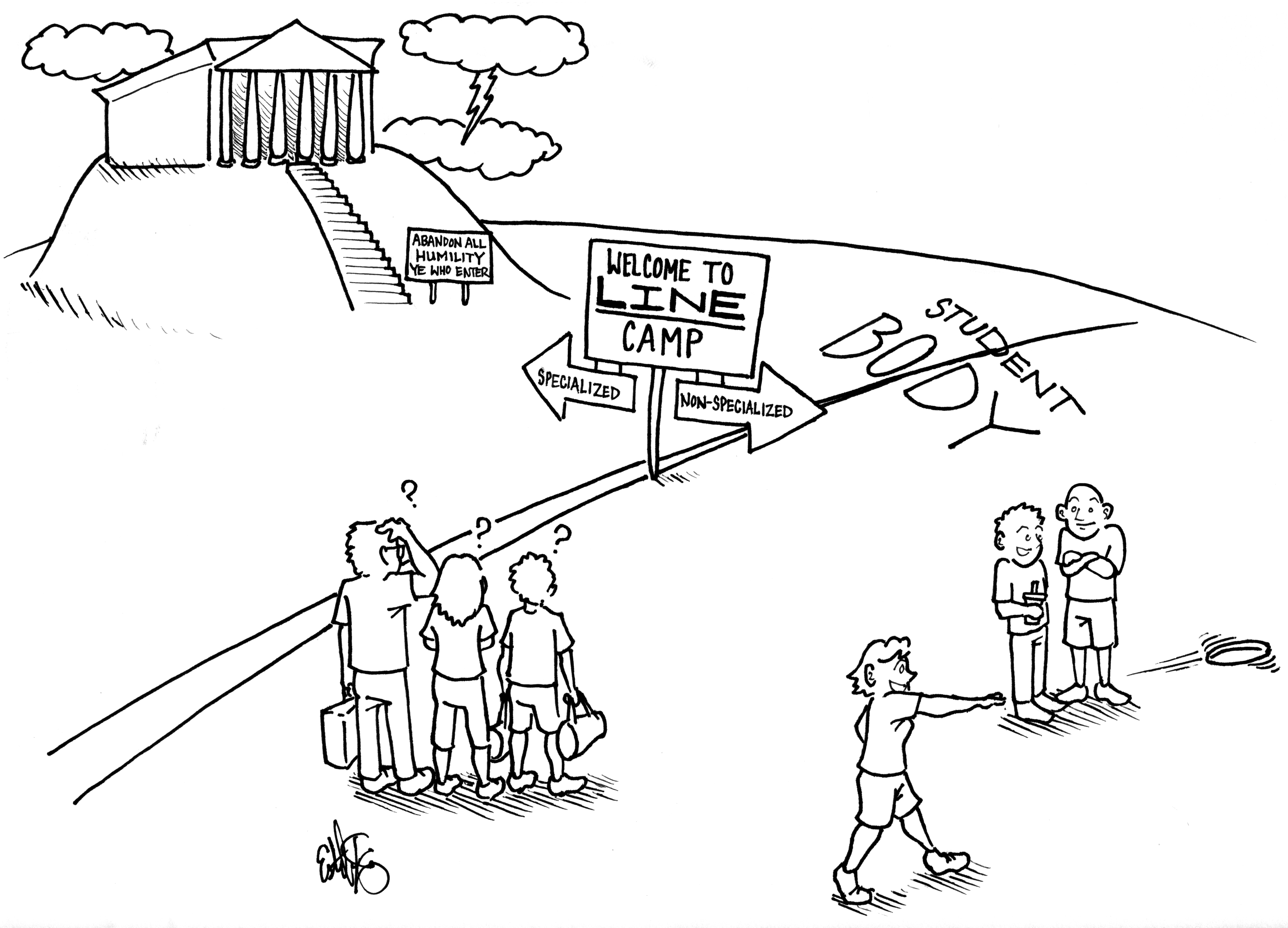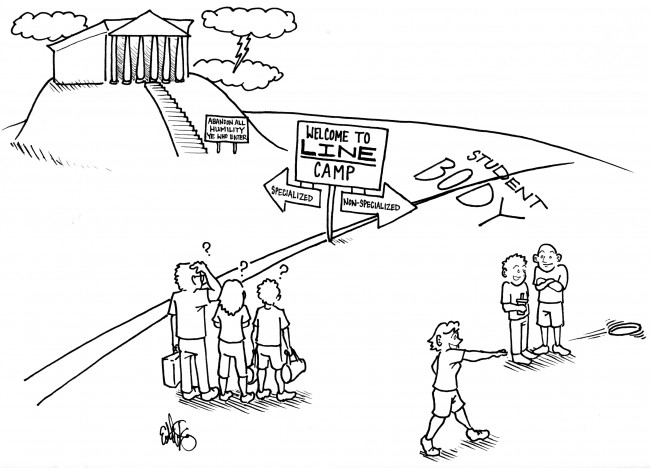This summer Baylor will offer a specialty line camp specifically designed with Honors College members in mind. The new line camp, which is similar to the already established engineering and computer science specialty camp, will overlap with regular summer line camp sessions but will split the honors session students from the rest of the line camp participants.
While the new specialty camp may perhaps create a more comfortable and familiar environment for the honors group, it may also create and isolate distinct student segments from the general Baylor community, thereby discouraging the strength of community relationships and student interaction that the university seems to hold most dear.
Baylor Line Camp is a university program designed to ease the transition from high school to college life through new friendships and familiarity with university traditions, and it also purports to promote community bonding and acceptance among new students before their first year of college classes begins.
While the camps have been successful in creating these bonds and have undoubtedly sparked lifelong friendships among its participants, the new specialty camp offers a potentially negative impact for participating students.
In this case, it is not a negative experience that should be anticipated; rather, it is what the students will miss out on that should be of concern.
College is often considered the transition period between childhood dreams and the reality of the work force, and part of this transition includes challenging students — both academically and socially — to test new ideas and established opinions in order to gain a better grasp on their identity.
Baylor encourages such a perspective in its mission statement, saying that “the university remains dedicated to the traditional responsibilities of higher education dissemination of knowledge, transmission of culture, search for new knowledge, and application of knowledge — while recognizing the global proportions these responsibilities have assumed.”
Baylor hopes to develop responsible and informed citizens and leaders who are sensitive to the varying needs of society in an ethnically and culturally diverse community environment.
Programs such as Baylor Line Camp, Welcome Week and University 1000 all encourage such a mission, but the key to success for these programs is the diversity established by including students from varying majors, interests and backgrounds.
By offering an exclusive program that only includes those of a particular character or mindset, such as honors or engineering, students grow accustom to a new comfort zone before even being introduced to the diversity Baylor offers.
Such specialty programs are conducive to developing strong bonds between a small group of individuals, but the pros do not outweigh the cons here.
Becoming a part of a limited social environment, however, inhibits the university and its many programs’ mission to challenge students in all aspects of life in order to create better understanding and preparedness for a society of diverse people and beliefs.
Baylor’s residential communities, which cater to the academic concentrations and personal interests of students, are beneficial to students in developing a core group of peers with whom to engage on a daily basis.
Baylor Line Camp should be kept as an experience to be had with the entire Baylor community because it is a time to develop universitywide relationships, to broaden personal horizons and to engage with a myriad of people.
The university should rethink the long-term effects of its specialty programs and the contradictory message it sends to students who are prompted to engage in developing and challenging new ideas with individuals while also being encouraged to remain within a specific group that shares a similar way of thinking.







